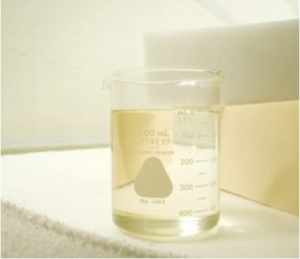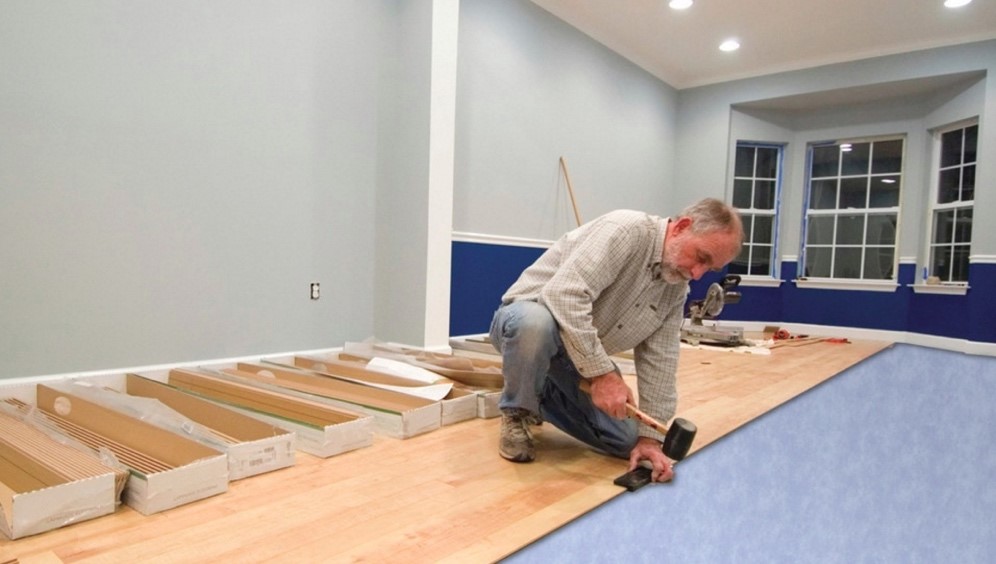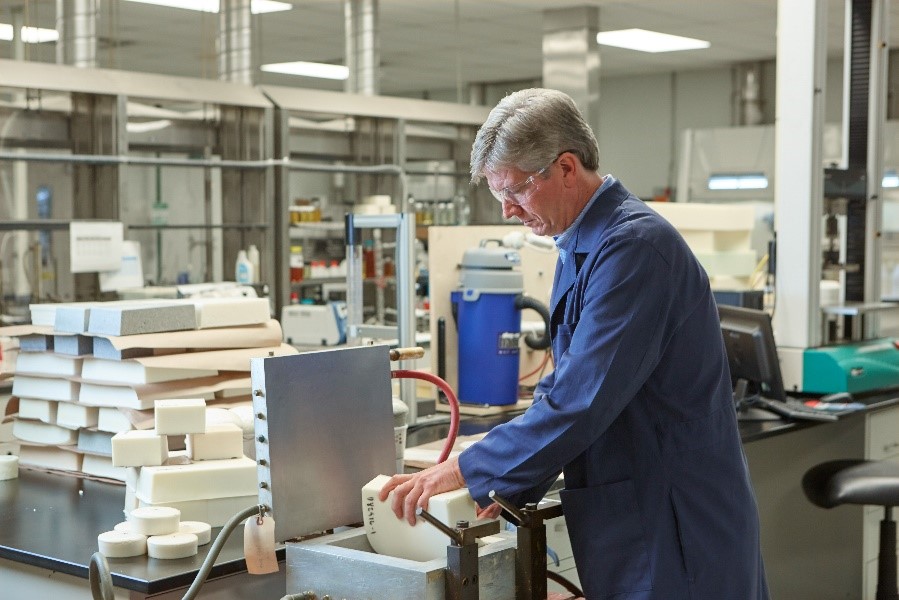Soy Polyol Manufacturers Cozy Up to the Furniture Industry
November, 2006
For several years a handful of universities and private organizations have researched  replacing petroleum with soy oil in polyol formulations. Odor and yellow coloring have deterred the advancement of such research – until recently. A handful of organizations have successfully overcome such hurdles and are working with industry partners to include soy polyols in foam applications in the home furniture and automotive industries.
replacing petroleum with soy oil in polyol formulations. Odor and yellow coloring have deterred the advancement of such research – until recently. A handful of organizations have successfully overcome such hurdles and are working with industry partners to include soy polyols in foam applications in the home furniture and automotive industries.
Ford Motor Company was the first company to develop a soy polyol for use in foam seating applications. Recently, a new soy polyol from Cargill called BiOH was created and will be used in upholstery applications within the furniture industry.
Much of the groundwork for the development of soy-based polyols has been made possible by funding from the United Soybean Board (USB) and soybean checkoff. The most recent soybased polyol product was developed by initial funding from USB to Pittsburg State University in Kansas. Pittsburg State University teamed up with Cargill to further the development of this product, and, after extensive research, the new polyol was created and given the brand name BiOH.
Cargill immediately geared up to handle large scale requests for BiOH polyols. The company continues to promote the benefits of the product, which include exceptional fire-retardant properties, lasting color and structural properties that are similar to those of competing petroleum foams. According to Bill Brady, spokesman for Cargill Industrial BioProducts, “the BiOH polyol can replace anywhere from 10 percent to 40 percent of petroleum polyols depending on the application.”
Cargill’s growing list of customers for BiOH soy polyols includes many of North America’s leading foam producers, including Hickory Springs Manufacturing Company, an upholstery and bedding foam products manufacturer; NCFI Polyurethanes, a division of BMC, Inc. and a polyurethanes manufacturer; and the Woodbridge Group, a developer of polyurethane foams for the automotive industry. As manufacturers continue to move toward high-performing environmentally friendly products, the demand for soy-based intermediates will continue to increase. According to a recent BiOH news release, Cargill can prepare millions of pounds of the soy polyol and maintain the logistics to ship the product around the world.
“We are thrilled to see soy positively impact the plastics and industrial foams sector of the market and know that without industry partnerships, like BiOH and Cargill, these types of opportunities wouldn’t be possible,” says Todd Allen, chair of USB’s New Uses Committee and a soybean farmer from West Memphis, Ark. “We look forward to additional use of soy in the home and automotive industries and the continued efforts of industry to make these endeavors possible.”
To learn more about BiOH, contact Cargill at 1-877-POLYBIO (765-9246) or e-mail at customerservice_polyols@cargill.com. For more information on soy-based products and technology, visit USB’s Soy Products Guide online at www.unitedsoybean.org



